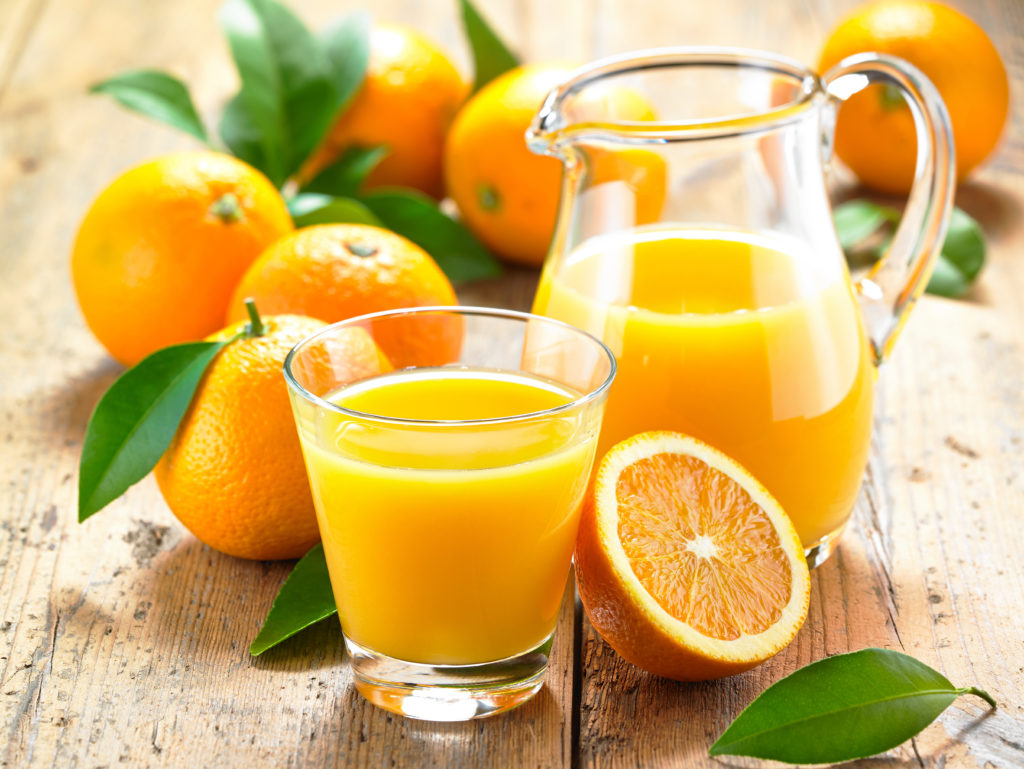Orange juice protects against dementia?
Orange juice is a healthy drink that is also very tasty. Therefore, it is not surprising that many people prefer to consume regular orange juice. Researchers found now, that when people drink every day a glass of orange juice, this seems to reduce the risk for the development of dementia significantly.
The scientists at the Harvard T. H. Chan School of Public Health found in their current study that the regular consumption of orange juice in humans protects against the development of dementia. The doctors published the results of their study in the English journal “Neurology”.

Study included almost 28,000 volunteers
For their study, the experts watched nearly 28,000 men over a period of two decades. These were at the beginning of the study, an average of 51 years old. So they wanted to see how your fruit and vegetable consumption affects the brain power. They found that men who drank a small glass of orange juice, had a 47 percent less likely to develop difficulties with memory, to follow instructions or to move in familiar areas. Memory gaps and confusion can be early signs of brain deterioration, which can ultimately lead to life-threatening dementia.
A healthy diet protects the brain
Are estimated to live worldwide, 46.8 million people with a disease to dementia. 850,000 of them live in Großbritannkien and five million Sufferers living in the United States, the researchers say. So far there is no cure for the disease, although scientists have been trying for years to find such. The new evidence confirm the importance of a healthy diet for the prevention of age-associated Degeneration of the brain. Fruits and vegetables are rich in vitamins and nutrients, including antioxidants, which can protect the brain. The health-promoting benefits can protect the brain against the accumulation of unwanted molecules and a healthy blood supply to the brain is maintained. The long-term intake of vegetables, fruits and orange juice could be for the maintenance of the cognitive functions of advantage, explains study author Chang Zheng Yuan of the Harvard T. H. Chan School of Public Health in a press release.
How much fruit and vegetables consumed by the subjects?
The Participants in the study answered questionnaires about what they ate for four years. The subjects were divided into five groups, depending on the fruit and vegetable intake. The group with the highest consumption ate about six servings of vegetables per day, participants of the group with the lowest consumption of only two portions consumed. A Serving of vegetables was defined as a Cup of raw vegetables or two cups leafy vegetables. The group with the highest consumption of fruits consumed about three servings per day, the lowest consumption group was half a Serving. A Serving of fruit consisted of a Cup of fruit or half a Cup of fruit juice.
How did the consumption of vegetables?
To measure how the consumption of vegetables and fruit affects the health of the brain, the researchers conducted Tests of Thinking and memory ability, as the participants were taking at the age of 73 years. In the Tests, for example, questions were asked as to whether the men can recall the past events or the list of your purchases. A total of 6.6 percent of men who consumed the most vegetables, poor cognitive function and achieved developed poor results in the Tests, compared with 7.9 percent of the men who ate the least vegetables.
How did the consumption of fruit juice?
Only 6.9 percent of people who drank every day orange juice developed a poor cognitive function. In contrast, 8.4 percent of men who drank less than once a month in orange juice developed a poor cognitive function. The protective role of regular consumption of fruit juice was observed mainly in the oldest men, explain the experts. As fruit juice, usually rich in calories, it is best to take more than a small glass per day.
